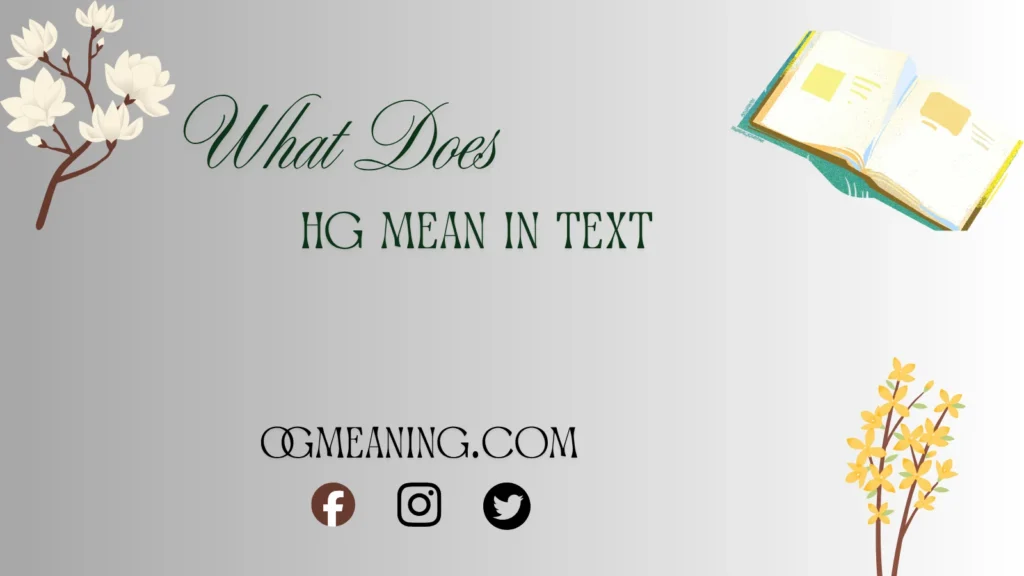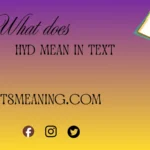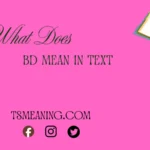If you’ve ever scrolled through a message and seen someone write “etc.” at the end of a sentence, you might have paused for a second — wondering what it really means. 🤔 Does it stand for something specific? Is it professional to use? Or is it just a lazy way to end a list?
Let’s dive deep into the real meaning of “etc.”, how it’s used in texts, emails, and conversations, and what you should (and shouldn’t) do when writing it.
By the end of this guide, you’ll know exactly how to use “etc.” like a pro — whether you’re writing an academic essay, sending a casual message, or improving your communication skills for better clarity and confidence.
The Meaning of “Etc.” in Simple Words
The abbreviation “etc.” stands for the Latin phrase “et cetera,” which literally means “and other things” or “and so on.”
It’s used to show that a list continues beyond what’s been mentioned. For example:
“I packed my bag with clothes, shoes, toiletries, etc.”
Here, “etc.” means there are more items in the bag, but the speaker doesn’t want to list them all.
📚 Quick Breakdown:
- Et = “and”
- Cetera = “the rest” or “other things”
So together: “Et cetera” = “and the rest.”
Why “Etc.” Is So Common in Text Messages 💬
People love shortcuts — especially in texting. “Etc.” saves time by summing up the rest of your list without spelling everything out.
For instance:
“Bring some snacks, drinks, napkins, etc. for the picnic.”
You don’t need to list every single item. The reader understands you mean “and other similar things.”
Using etc. in text also makes your writing feel natural and conversational, which is perfect for digital communication where brevity is key.
However — ⚠️ it’s also easy to misuse it. Keep reading to learn when not to use “etc.”
Common Misconceptions About “Etc.”
Many people think “etc.” means “end of thinking capacity” or that it’s just slang. That’s not true! 🙅♂️
Let’s clear up some myths:
| Myth | Reality |
|---|---|
| “Etc.” is modern slang. | False — it’s a Latin term dating back centuries! |
| It’s okay to use “etc.” for people. | Wrong — “etc.” should not refer to people. |
| “Etc.” can be repeated like “etc., etc.” | Technically redundant, though used informally. |
| It means “and so on.” | ✅ Correct — this is its real English equivalent. |
When to Use “Etc.” (The Right Way)
Here are some golden rules for using “etc.” correctly:
- Use it after lists of things (not people).
✅ “We bought apples, oranges, bananas, etc.”
❌ “We invited John, Lisa, Mark, etc.” (Sounds disrespectful.) - Use it to show continuation of similar items.
✅ “He collects stamps, coins, postcards, etc.” - Use a comma before it if needed.
✅ “You’ll need pens, paper, markers, etc., for the class.” - Don’t overuse it in formal writing.
In essays or reports, it’s better to say “and so on” or “among others.”
When Not to Use “Etc.” 🚫
Even though “etc.” is useful, there are times it’s best avoided.
- In professional emails:
Instead of “Please bring your laptop, charger, etc.”
Try “Please bring your laptop, charger, and other essential tools.” - In academic writing:
“Etc.” can sound vague. Professors prefer specific terms like “and similar factors.” - When it adds confusion:
If your list is already clear, “etc.” isn’t needed.
Example: “I like reading, writing, and drawing, etc.” — unnecessary!
How “Etc.” Evolved in Modern Language
“Etc.” isn’t new — it’s ancient! 😮
The phrase et cetera originated from Latin, used by scholars and writers as early as the 1st century AD. Over time, English speakers adopted it because it was elegant and efficient.
Fun fact: During the 18th and 19th centuries, educated writers often used “&c.” instead of “etc.” The ampersand (&) stood for “et,” and “c.” for “cetera.”
Today, “etc.” has become universal, appearing in emails, messages, blogs, and even legal documents.
The Grammar Rules of Using “Etc.”
Let’s go over the grammar do’s and don’ts of “etc.” so you can use it confidently:
✅ Do:
- Use a period after “etc.” because it’s an abbreviation.
- Use one “etc.” per sentence — no need for repetition.
- Place it before the period or comma at the end of the sentence.
❌ Don’t:
- Capitalize it unless it begins a sentence.
- Combine it with phrases like “and so on” or “and others” — it’s redundant.
Example: “Apples, oranges, etc. and so on.” ❌
Examples of “Etc.” in Different Contexts 📖
Here’s how “etc.” fits naturally in various types of writing:
1. Casual Texts:
“I’ll grab chips, soda, plates, etc. for the party.”
2. Academic Writing:
“The study analyzed various socioeconomic factors such as income, education, employment, etc.”
3. Business Emails:
“Please confirm your travel details — flight, hotel, luggage, etc.”
4. Technical Writing:
“Install the necessary dependencies: Python, Flask, NumPy, etc.”
5. Social Media Posts:
“I love coffee, books, cozy vibes, etc. ☕📚✨”
The Emotional Tone of “Etc.” in Digital Communication
In texting, tone matters!
“Etc.” can feel neutral or dismissive depending on the context.
- Neutral: “We need sugar, eggs, flour, etc.” ✅
- Dismissive: “She always talks about her job, car, house, etc.” 😒
So, be mindful — sometimes “etc.” can sound like you don’t care to finish your thought. In friendly or emotional conversations, it’s better to use “and other things like that” or “and more.”
Should You Use “Etc.” or “And So On”?
Both are correct — but context decides which sounds better.
| Expression | Best Used In | Example |
|---|---|---|
| Etc. | Short texts, notes, informal writing | “Buy fruits, milk, bread, etc.” |
| And so on | Spoken English, descriptive writing | “He loves old movies, black-and-white films, and so on.” |
| And others | Formal documents or people-related lists | “The report includes findings by Smith, Johnson, and others.” |
How to Pronounce “Etc.” Correctly 🎤
You might hear people say it differently, but the correct pronunciation is:
Phonetic: /etˈsetərə/ or /etˈsetrə/
❌ Common mistake: Saying “ek-setera.”
✅ Correct way: “et-set-er-uh.”
So next time you use “etc.” aloud in a meeting or conversation, say it confidently and clearly! 😎
The Digital Evolution: “Etc.” in Online Chats & Social Media
In the digital world, people often use etc. to shorten long lists or add humor.
Example:
“I’ve been working, studying, cleaning, cooking, etc. — basically adulting all day 😅.”
It adds a casual tone while keeping the message concise.
However, Gen Z and Millennials sometimes skip “etc.” entirely and use emojis or phrases like:
- “…and stuff”
- “…and all that”
- “…you know the rest 😜”
Still, “etc.” remains the universal shortcut — polite, neat, and timeless.
Expert Tips for Using “Etc.” Professionally 💼
- Limit its frequency: Overusing “etc.” can make your writing feel vague.
- Replace with specific examples: Instead of saying “factors, etc.,” list 2–3 strong examples.
- Check tone: In emails, “etc.” can sound rushed. Use full phrases if you want to sound polished.
- Be precise in business writing: Use “among other things” or “and related areas” for clarity.
Common Errors People Make with “Etc.” 😬
- Writing “ect” instead of “etc.” (very common typo)
- Using it for people: Never say “My friends John, Lisa, etc.”
- Doubling it: “Etc., etc.” sounds repetitive.
- Combining it with “and”: “And etc.” is grammatically wrong.
Psychological Insight: Why People Use “Etc.” So Often
Linguistically speaking, “etc.” reflects efficiency and shared understanding.
When you use it, you assume your listener knows what you mean. It signals familiarity and context.
But overusing it can backfire — making your communication sound lazy or unclear. The trick is balance: use “etc.” when it adds efficiency, not when it hides missing details.
Real-Life Scenarios (Examples Table)
| Context | Correct Usage | Explanation |
|---|---|---|
| Shopping | “Buy milk, bread, eggs, etc.” | Shortens long item lists |
| Work Email | “Please update files, reports, etc.” | Efficient, but use carefully |
| School Essay | “The climate includes factors like temperature, humidity, etc.” | Acceptable, but not in formal tone |
| Social Media | “Beach, sun, waves, etc. 🌊” | Casual and expressive |
| Technical Doc | “Use variables, constants, arrays, etc.” | Fits structured writing |
FAQs About “Etc.”
1. What does “etc.” mean in text messages?
It means “and other things” or “and so on.” It’s used to shorten lists when the rest of the items are understood.
2. Is it rude to use “etc.”?
Not usually, but tone matters. In professional or emotional messages, it can sound dismissive. Use with care.
3. Can I use “etc.” for people?
No. It’s grammatically incorrect and can sound impolite. Instead, say “and others.”
4. What’s the correct spelling?
Always “etc.” — never “ect.” The order of letters matters!
5. Can I write “etcetera” as a word?
Yes, “etcetera” is the full form, but “etc.” is more common in writing.
Conclusion: Mastering the Use of “Etc.” ✨
Using “etc.” might seem simple, but it’s a tiny word with powerful impact.
It helps make your writing concise, organized, and reader-friendly — when used correctly.
Remember:
- It means “and other things.”
- Use it for objects, not people.
- Avoid overuse in formal writing.
Next time you’re writing a text, essay, or email, you’ll know when to add that tiny abbreviation confidently — and when to skip it for clarity.


